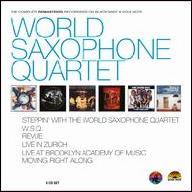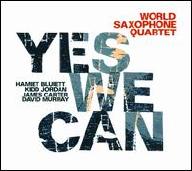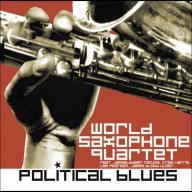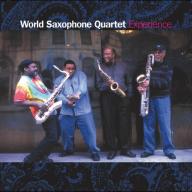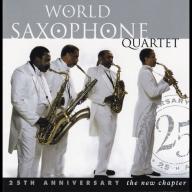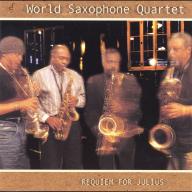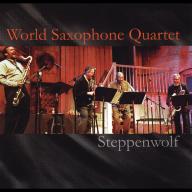The WSQ were founded in 1976 after the four original members (all of them well-established solo artists) accepted an offer by Ed Jordan, the chairman of the music department at Southern University in New Orleans, to conduct a series of clinics and performances with and without a local rhythm section. The enthusiastic audience response to the unaccompanied saxophones convinced the musicians to develop the concept. They played a gig at the (now defunct) Tin Palace in New York, calling the group the Real New York Saxophone Quartet. They were later forced to change the name after reportedly being threatened with a lawsuit by the preexisting New York Saxophone Quartet; hence, the World Saxophone Quartet. In 1977, the band recorded its first album, an almost completely improvised effort called Point of No Return, for the Moers Music label. Later releases on Black Saint documented the band's increasing interest in composition. The membership stayed constant until Hemphill's departure in 1989. Arthur Blythe was the first of Hemphill's several replacements. Blythe was with the band from 1990-1992, and from 1994-1995. James Spaulding joined briefly in 1993, and was quickly replaced by Eric Person. In 1996, after Blythe's second tenure, John Purcell took and held the chair.
Although they were a sax-oriented group, the WSQ's members were also multi-instrumentalists. The band always incorporated a wide variety of woodwinds into its sound. After Rhythm Blues (1986, Elektra/Musician), the WSQ began using other musicians in their recordings and performances. Metamorphosis (1990, Elektra/Musician) added African drummers and electric bassist Melvin Gibbs. Later records utilized pianists, vocalists, bassists, and drummers. In adding other musicians, the band sacrificed part of its distinctiveness. The novelty of the band's original approach, and its ability to swing so hard sans rhythm, had set it apart. By the end of the '90s, the WSQ had lost their major-label deal. The group continued performing and recording into the new millennium, but in 2016 when health issues forced Hamiet Bluiett (who died in 2018) to stop playing, the other WSQ members decided to disband. ~ Chris Kelsey, Rovi


